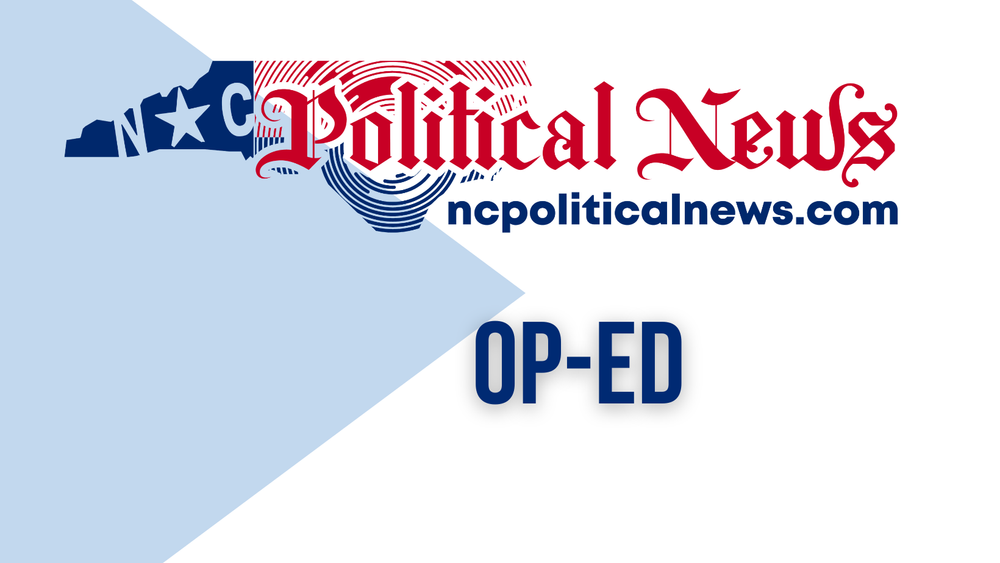John Hood: New Evidence Confirms Taxes Matter
By JOHN HOOD
RALEIGH — Ever since Republicans won control of the North Carolina General Assembly in 2010 and began reforming the state’s tax code, progressive critics have argued that taxes play little to no role in shaping economic outcomes.
Indeed, they argue that the economic benefits of state expenditures outweigh any potential benefits from tax reduction. The logic of their argument is that North Carolina’s economy has grown more slowly over the past decade than it would have if state lawmakers had left taxes alone and spent each year’s revenue growth on current public services, new programs, and pay raises for public employees.
I think the progressives’ view is mistaken, although I can understand why they believe it. Education, transportation, public safety, and other state programs do play a role in fostering growth and development over time. Few seriously dispute this proposition.
The hitch is that, as with any other good or service in the economy, public services have diminishing returns. Up to a certain level of spending, their benefits exceed their costs (in taxes). Beyond that peak, the benefit from spending every additional dollar declines. Eventually it falls below the benefits to the economy of leaving the dollar in the hands of the household who originally earned it.
The evidence is fairly strong, I submit, that North Carolina reached that point many years ago. We should absolutely spend more tax dollars on some areas of state government — compensation for correction officers and other public safety personnel is woefully inadequate, for example — but we should offset that by spending less in other areas.
As to the economic effects of taxation, there’s new evidence. In the latest edition of the Journal of Risk and Financial Management, two professors from North Dakota State University and a colleague from Thailand’s Kasetsart University published the results of a study of a decade of tax and economic data from all 50 states.
“The findings consistently demonstrate that taxes harm local economies,” they wrote, “although the magnitude of the impact varies depending on the specific type of tax.”
Increases in income, sales, and property taxes all reduce employment rates, for example, but effect sizes differ. On another variable of interest, the number of patents per capita (a measure of innovation), income and sales taxes had negative effects but property taxes didn’t. And on gross domestic product per capita, income and property had negative effects but sales taxes didn’t.
The researchers also found positive effects from government spending in some regressions, but they were smaller and less consistent.
In another paper published last year, economist Richard Cebula compared state tax burdens to patterns of economic migration across the country. Published in the journal Public Choice, his study found “strong support” for the proposition that Americans tend to move away from highly taxed jurisdictions to lower-taxed ones.
We can also draw useful conclusions from studies of the federal tax changes enacted by Congress in 2017. One recent paper found that lowering the corporate tax rate resulted in higher domestic investment. Another study concluded that “reductions in marginal income tax rates cause increases in sales, profits, investment, and employment, with responses driven by firms in capital-intensive industries.”
The growth effects here aren’t so large that tax cuts pay for themselves. Conservatives who make such arguments are vastly overstating their case. But tax reduction does make a country, state, or locality a more attractive place to live, work, invest, and build a business.
That doesn’t mean all or even most households and businesses will ever pick up and move to other places just so they can have a lower tax bill. Other variables matter, too: housing prices, job markets, weather, community ties, and proximity to valuable amenities. Still, as mounds of studies now document, tax burdens do matter. There are enough actors who are willing to relocate, or to modify their economic behavior in some other way, to make it worth our while to continue the process of reforming North Carolina’s tax code.
John Hood is a John Locke Foundation board member. His latest books, Mountain Folk and Forest Folk, combine epic fantasy with early American history (FolkloreCycle.com).
Are you tired of being bombarded by paywalls and pop-up ads when trying to read the news? Do you believe that access to reliable political news should be free and accessible to everyone? Then we urge you to support NC Political News, a weekly electronic political news outlet.
NC Political News is committed to providing high-quality, unbiased political reporting with columnists from all political sides. Unlike other news outlets, NC Political News is free to read and supported by businesses who purchase ad space on our website and in our newsletter, which goes out Monday through Friday at 7:00 am. This means that readers like you can access the news without being asked to pay a cent or dealing with frustrating advertisements.
However, to continue providing this valuable service, NC Political News needs your support. If you believe in the importance of accessible, free news, we urge you to click the image below. Any amount of support is appreciated.
Together, we can keep the news free and help ensure our state stays informed and connected.




